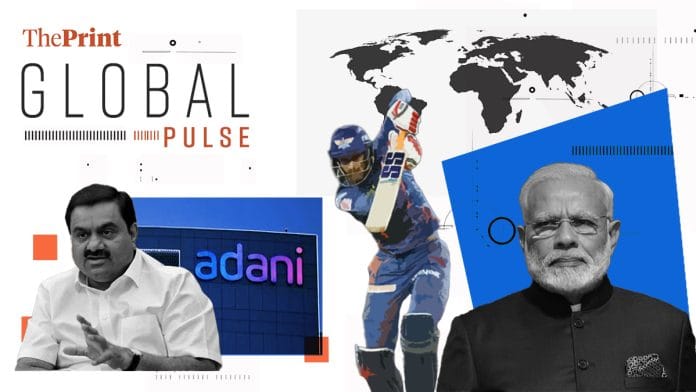New Delhi: India’s Adani Group is planning to expand into ecommerce and digital payments to compete with Google and Reliance Industries, says an article published in Financial Times, titled ‘Adani plans push into Indian ecommerce and payments, written by Benjamin Parkin.
This comes at a time when the group’s founder Gautam Adani is seeking to “move on from damaging scandals and diversify his empire into fast-growing consumer-facing markets”, the article says. The group is considering a Unified Payments Interface (UPI) licence and partnering with banks for an Adani credit card.
Additionally, it is in talks to offer online shopping through the government-backed Open Network for Digital Commerce (ONDC), highlights the article, adding that Adani’s consumer services will be accessible via its app, Adani One, launched in 2022.
An article published in The Times of India Wednesday said that the Adani Group was “looking to buy a stake in One 97 Communications, which operates Paytm”. Both Adani and Paytm have since denied this claim.
The latest ‘Argument’ — an expert’s point of view on a current event — in Foreign Policy, highlights how Prime Minister Narendra Modi is doubling down on “anti-Muslim” language ahead of the election results next week.
In the column titled ‘Modi’s Campaign Rhetoric Is Dangerous’, Sushant Singh, a lecturer at Yale University and a consulting editor with the Caravan magazine in India, writes that the PM’s anti-Muslim rhetoric has stoked fear among Hindus that their wealth and job quotas would be redistributed to Muslims if the Opposition comes to power.
Also read: Adani’s ‘coal scam’, ‘missing Modi wave’ & shadow ads — what global media reported on India
Despite hate speech being a criminal offence in India, the Election Commission of India (ECI) has ignored Modi’s violations, writes Singh, noting that the PM himself “chose” the three leaders of the ECI.
Modi’s rhetoric, exemplified by his claim that Opposition policies would “transfer [gold] among those who are infiltrators and have more children”, threatens India’s democratic and secular fabric, writes Singh, adding that “Modi’s message to Indian Muslims is unequivocal: You do not matter politically.
An article published in The Diplomat, how India’s dominance in cricket has made events like the Indian Premier League (IPL) and the upcoming World Cup some of the most important events in the sport and how, as a result, the chances of political interference has also increased.
In his article ‘How India’s Politics Is Reshaping International Cricket’, Priyansh, a doctoral candidate in Physical Cultural Studies at the University of Toronto, writes that in early May Modi stirred communal tensions using cricket.
In Dhar, Madhya Pradesh, where Congress had promised an IPL franchise, Modi claimed that the Opposition party would select the national cricket team based on religion, “pandering to the rampant Islamophobia”.
Cricket and politics in India are deeply intertwined, with recent events showcasing this relationship. For instance, he writes that the Supreme Court’s end to anonymous political donations revealed that IPL team Chennai Super Kings donated $600,000 to a BJP ally in 2019. “Irrespective of how the election results turn out on June 4, Indian cricket will bear the scars of the Hindu nationalist regime for some time to come,” he writes.
Democracy activists found guilty in Hong Kong, Israeli bombardment continues in Rafah
In Hong Kong, 14 people have been found guilty in one of its biggest national security trials — the prosecution of the so-called “Hong Kong 47” pro-democracy campaigners. To know more, read this article by The Guardian.
Meanwhile, fierce street fighting and Israeli bombardment continue in Rafah, a day after tanks rolled into the centre of the southern Gaza city sheltering thousands of civilians. To know more, follow live updates by Al Jazeera.
(Edited by Zinnia Ray Chaudhari)
Also read: The many possible outcomes of Indian elections & a band of aging activists championing peace






